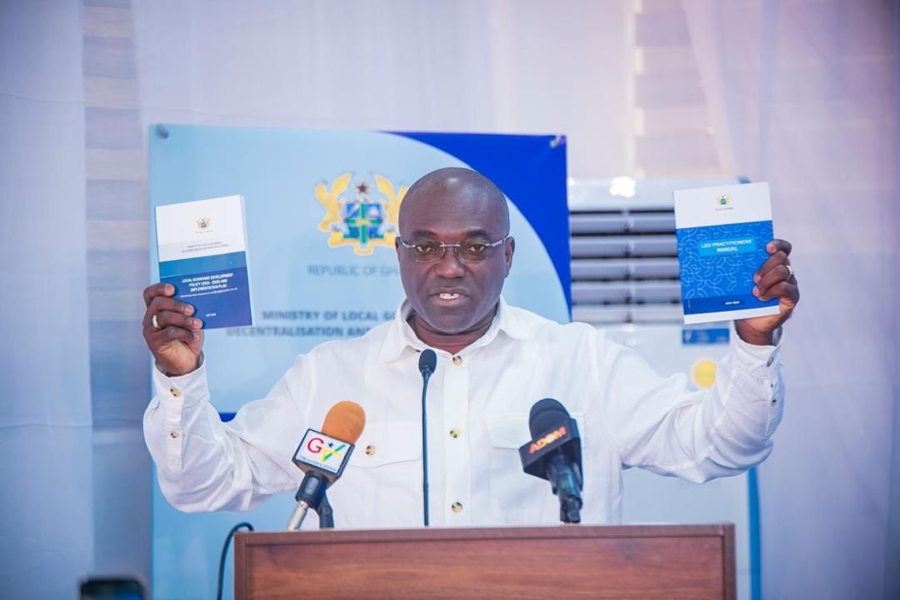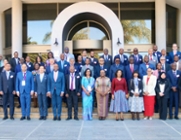Ghana launch LED policy and implementation plan

11 September 2024
The Minister for Local Government, Decentralisation and Rural Development, Hon Martin Adjei-Mensah Korsah MP launched the Ministry’s new Local Economic Development (LED) Policy and Implementation Plan. The official launch took place at the Institute of Local Government Studies in Accra, on 10 September. Accompanying the policy and plan is a Practitioners’ Manual to enable practical implementation from 2024 to 2029 across Ghana.
Conducive environment for growth
The goal of the policy is to promote a conducive environment at the Metropolitan, Municipal and District Assembly (MMDA) level for sustained local business growth, decent employment opportunities and economic empowerment for all Ghanaians.
The policy has eight objectives which are broadly aimed at building capacity, strengthening institutional structures and providing an enabling environment for Local Economic Development (LED) at the Metropolitan, Municipal and District Assembly (MMDA) level.
Sharing good practice examples in the region
The Commonwealth Local Government Forum West Africa Regional Programme Manager, Ms Joyce Ekuful, participated in the policy launch where she was one of the panellists for the panel discussion session. As part of her submission during the panel discussion, she congratulated the Ministry for working hard to have this policy approved by cabinet, following the 2013 and the 2020 LED policies and Implementation plans. She shared experiences of CLGF and some good practices in the implementation of LED in the region. Among others, she highlighted the Margin of Preference Principle in the Public Procurement Act 2016, for Sierra Leone, which allow councils to give contracts to businesses in the locality, if they meet a minimum mark in the procurement processes.
Collaboration and sharing of expertise
She emphasised and highlighted the need for collaboration among stakeholders in promoting LED in the country. She explained that, with collaboration, many successes can be achieved with limited resources. She used the collaborative work of CLGF, UNDP, GIZ, Ghana Statistical Service, NALAG and the Ministry to develop and train MMDAs on administrative data in Ghana from 2021-2022, to support her point. She explained how, if just the CLGF support had been used for the project, only a few MMDAs would have been covered, but with all the partners putting their resources together, 101 MMDAs were covered under that project. In addition, she stressed the need for frequent knowledge sharing sessions for the MMDAs on LED, so they could support each other in the implementation processes.
UNDP, GIZ, Ghana Statistical Service, NALAG and the Ministry to develop and train MMDAs on administrative data in Ghana from 2021-2022, to support her point. She explained how, with just the CLGF support that was used for the project, only few MMDAs would have been covered, but with all the partners putting their resources together, 101 MMDAs were covered under that project. In addition, she stressed the need for frequent knowledge sharing sessions for the MMDAs on LED, so they could support each other in the implementation processes.
Guiding the Ghanaian economy in the future
In the keynote address of the HonourableMinister, he highlighted some achievements made in the country under the 2020 policy, which include the development of LED platforms in all MMDAs, development of LED Strategies by MMDAs, LED sub-committees established in all MMDAs, 46 urban markets constructed, over 3000 officers trained in LED and over 37,000 jobs created in the Agric sector alone. He expressed the hope that the new policy will guide the Ministry, MMDAs and all stakeholders to make great impact in the local economy in the next five years.
Back to News





